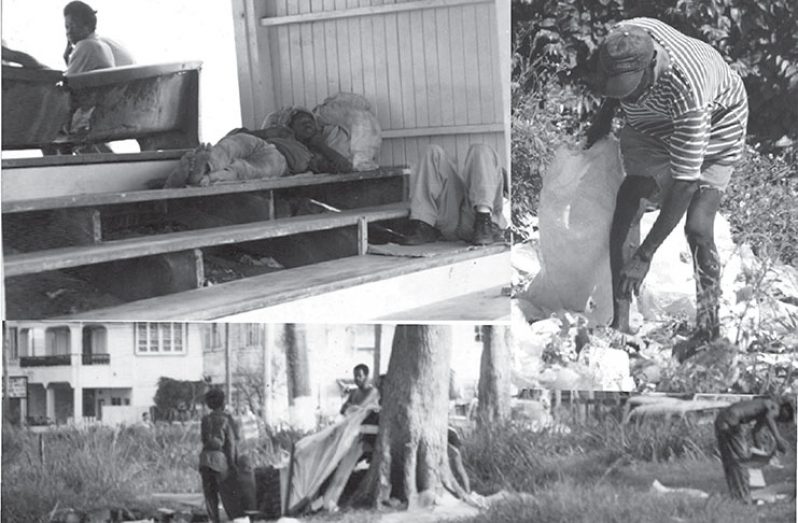THERE are no progressive lobbying groups that peer into the dismal world of men. There are, or were, a few TV shows hosted by men that expressed didactic sermons inspired by the more vocal stereotypes and slogan negatives of the male nature.
No surveys have been done to tabulate the percentage of sons that were smoothly delegated the responsibilities of surrogate fathers, especially in the matriarchal belt of this nation. And wherever that cultural disposition prevailed, in many cases into maturity and at the expense of their own life-skills development and with subtle demands to continue fulfilling these expectations while raising their own families, at times these unreasonable responsibilities are extended to another signed-on generation.
When times get difficult, males are the evident group that are forced to drop out of school subject to the economics of the home, and are lured into daring areas to gain the means to support families. Ask how many of them have died in the ‘gold bush.’ Subject to a historic tribal norm, raised in the primitive grades to produce warriors and hunters, men are even to this day genetically programmed to the creed that ‘men don’t cry’; that they must defy all acts that border on cowardice with an absolute rejection of the modern idea that they possess a female side, and show machismo. In primitive times, those that exhibited no other talents but that of musicians, artists, mystics or poets could face death. And there were always the weak, the shifty and the tricksters in both male and female populations. So was the twilight gender group; dangerous as they come, depending on where you were born.
The fallen male I’m referring to in 2017 is unable to pay a $50,000 a month rent. He doesn’t earn that much, nor can he acquire a loan to build a home, even if he’s given land by the State.
SURVIVAL OPTIONS
So what are his practical survival options? Many of them sleep uncomfortably, eat substandard food, and may suspect that they’re ailing from something, but are too terrified to visit the hospital, or are afraid that if they are hospitalised, they don’t have the means to even pass for normal, much less to afford sheets, underwear or even a gym bag to put stuff in.
The latter reality brought back memories of younger men, including myself, who were pioneers involved in the Cooperative movement at Kuru Kuru before the college complex was opened. Can a collaboration using the template of what was achieved during those days be applied to males under the shed? We who were in Kuru Kuru came from all over Guyana. But the difference was that we smoked nothing; not cigarettes nor marijuana. And cocaine was unknown to village and south Georgetown youths back then in 1974. We did drink beers; heavy alcohol [called ‘daru’] was for old men. Culturally, we didn’t imitate Jamaican nor American accents; our inspiration in the entertainment business came from local bands like Yoruba Singers, Mischievous Guys, Telstars, Sid and the Slickers, etc. We were Guyanese more than anything else. The ‘Co-op’ was constituted as follows: We lived or were bunked in two barrack-styled buildings. We didn’t mind when we moved from the tent and ‘jackass’ accommodations by the creek, nor having to walk from our new location down to the creek for a bath. We made blocks, constructed chicken and pig pens under supervision from our GDF support group. We cultivated cash crops and were taught book-keeping by Lakeram Persaud. As the secretary, I had to attend these classes; I’ve never regretted any of it.
TEACH THEM TO FISH
I’m relating this because I feel that efforts to feed require the philosophy that it is better to teach a man to fish, rather than give him a fish. Building sustainable family communities was what was expected of us; but males don’t build communities without females. At that time, we had girlfriends with parents with scrutinising stares. Today, the subjects I’m referring to that may deserve this experiment are adults.
In our day, the highway was remote. Only Mr Glasgow planted pineapples in the Kuru Kuru area. The cooperative worked. The big ‘co-op complexes’ failed because they employed ‘comrades.’ Though we were not allowed to sell to the general public, I broke that law, with support from people like ‘Blair’s Delight’ and ‘Dax’ who picked up our chicken when the Linden Co-op failed us. Burnham tried to make proprietors of the colonials. He succeeded with their children in planting that seed, but the fossilised seniors undermined that agenda. I know, because I was there.
The mature [or younger] male population in need of help today can be encouraged into an improved ‘co-op’ environment, which can grow into a community. With the right crop and livestock husbandry input on board, vulnerable human resources can be harnessed into viable self-help options.
With the realities as they are, there will be less attitudinal hindrances recognising diminished options. Many of these men are not addicts; stressed maybe, but not insane. The idea that an approach which, most likely under supervision, could yield results with no tremendous budget expenditure, should be considered. Supervision will be technical, as are conduct, hygiene, work ethic and remuneration. And taking existing previous life commitments into consideration, communities can develop.
The vision that was designed for teens and young adults 44 years ago can bear fruit to their then peers today. And why not?



.jpg)









